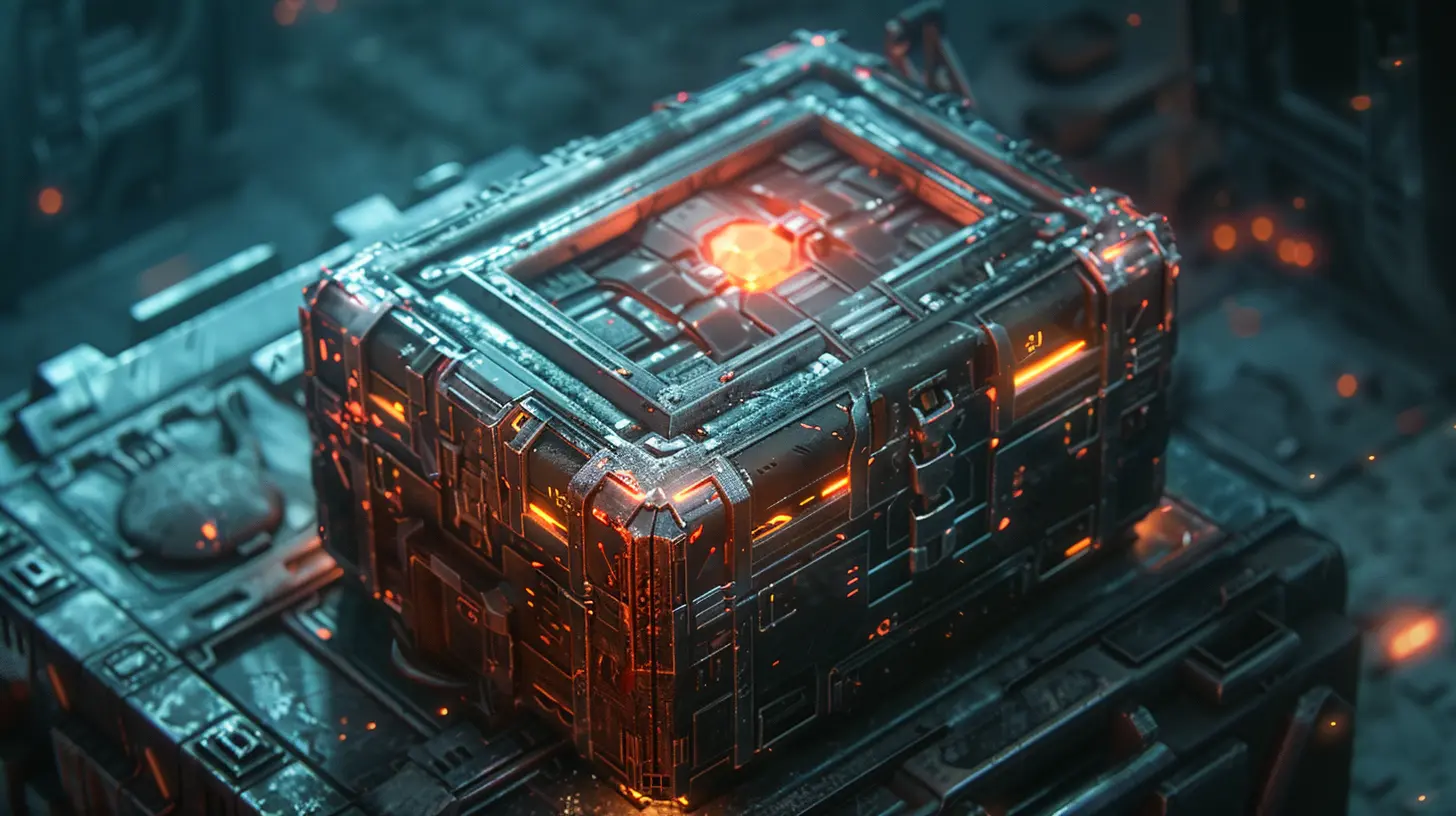30 March 2025
Let’s face it: loot boxes have become the glittering jackpot of the gaming world. They’re like that tempting claw machine at the mall that holds the shiny prize you just have to grab. Except in the digital world, the stakes are higher, the rewards are virtual, and the cost? Sometimes, it feels like an endless drain on your wallet.
For some, loot boxes are simply harmless fun—a thrilling gamble where you might snag a rare item or skin. For others, they’re a brick wall blocking player progression in gaming. But how do these little virtual treasure chests really affect your journey through a game? Let’s break it down, shall we?
What Are Loot Boxes? (And Why Do They Matter?)
Before we dive into how loot boxes mess with your progress, let’s define what they are. Imagine you’re playing your favorite game—shooting your way through enemies or completing quests—and then you’re presented with a shiny box. Inside? Mystery! It could be anything: a powerful weapon, a cool costume, or just another useless item you’ll never touch. The catch? You’ve gotta pay to open it. Sometimes with in-game currency, but more often with real money.Loot boxes are like Kinder Eggs for gamers, but instead of a fun toy, you might just get duplicate junk. The randomness is part of the appeal, right? But here’s the thing: this element of surprise is also what makes them controversial. It blurs the line between gaming and gambling, and when progression is tied to these little boxes, things start to get messy.
A Slow Crawl or a Power Sprint? The Impact on Player Progression
Alright, let’s talk about how loot boxes actually affect your progress. At its core, player progression in games is really simple: the more hours you sink in, the better your character gets. You level up, you get stronger gear, and you eventually dominate the game. Sounds fair, right? Now, throw loot boxes into the mix.1. The Pay-to-Win Paradox
Here’s where things get tricky. Some games let you pay for loot boxes that contain items giving you a serious advantage over players who rely on grinding. Let’s say you’re in a multiplayer game, and someone drops $100 on loot boxes, unlocking epic weapons no one else has. Suddenly, their progression leaps ahead of yours. You’re left playing catch-up, wondering if you should open your wallet too.It’s like running a race, but your competitor just opened a secret door that teleports them to the finish line. Frustrating? You bet. This creates a power imbalance that can sap the fun right out of the game.
2. The Grind Gets Grueling
Remember when grinding in games used to be fun? You’d spend hours fighting monsters or completing quests to finally earn that rare item. Loot boxes have turned that wholesome grind into something else entirely. Now, instead of rewarding patience and effort, some games use loot boxes as a shortcut.Developers design the game so that upgrading your character or unlocking gear feels agonizingly slow unless—you guessed it—you buy loot boxes. It’s like trying to climb a mountain, only for someone to keep moving the peak further away unless you fork over some cash.
3. Randomness Ruins Reward Systems
One of the biggest gripes with loot boxes is their randomness. Let’s say you’re after that one rare item that will truly elevate your gameplay. You open one loot box, then another, then another—and still, you don’t get it. Instead, you’re flooded with duplicates or cosmetic items you don’t even care for.This randomness can feel infuriating. It’s like fishing in a vast ocean where the fish you really want has a 0.01% chance of appearing. The joy of working toward a clear goal in games is replaced by the frustration of gambling.
The Psychology of the Loot Box: Why Can’t We Stop?
Why do we keep going back to loot boxes, even when we know they’re draining us? Simple—our brains are wired for it. Loot boxes capitalize on the same psychological hooks that slot machines in casinos use. The bright colors, the suspenseful animations, the thrill of possibly getting something amazing—it’s all designed to keep us hooked.Every time you open a loot box, your brain gets a hit of dopamine. That’s the “feel-good” chemical that rewards you for doing something enjoyable. Even if the rewards are trash, the anticipation keeps luring you back. It’s as if the game whispers, "Maybe the next one will have what you want."
How Loot Boxes Divide the Player Base
Loot boxes don’t just affect individual progression—they can impact entire gaming communities. Let’s break it down:1. Skill vs. Spending
In games that rely heavily on loot boxes, it’s often hard to tell if someone is skilled or if they’ve just spent a lot of cash. That legendary sword they’re wielding? Did they earn it through hard work, or was it luck from a dozen loot box purchases? This waters down the sense of achievement that gaming is meant to offer.2. Barrier to Entry
For new players, loot boxes can act as a massive gatekeeper. Jumping into a game where veterans have top-tier gear from loot boxes can feel overwhelming. Starting with bare-minimum gear against opponents who’ve bought their way to power is like bringing a wooden sword to a gunfight. It discourages people from sticking around.Are Developers to Blame?
Now, let’s take a step back and talk about the folks behind the games: developers and publishers. Are they the villains here? Not exactly. Developing games is expensive—like, millions-of-dollars expensive. Loot boxes are a way for companies to recoup costs and generate revenue, especially in free-to-play titles.But while the business side makes sense, there’s a fine line between fair monetization and predatory practices. When loot boxes start feeling like a necessity rather than an option, that’s when the backlash begins.
Can Loot Boxes Ever Be Fair?
Not all loot boxes are created equal. Some games use them purely for cosmetics—think fancy skins, emotes, or outfits that don’t actually affect gameplay. And you know what? That’s fine. If you want to deck out your character in a sparkling gold cape, more power to you.The problem arises when loot boxes directly impact progression or create inequalities. Transparency is key. Some games are adopting systems where you can see the odds of getting items before you buy, which helps players make informed decisions. It’s not perfect, but it’s a step in the right direction.
The Road Ahead: What Can Change?
It’s clear that the gaming world needs to rethink how loot boxes affect progression. But what can be done?1. Regulations and Laws
Some countries are already cracking down on loot boxes, labeling them as a form of gambling. This forces companies to rethink how they incorporate them into games. Stricter regulations could lead to more player-friendly systems.2. Rewarding Effort Over Spending
Developers could focus on rewarding players for their time and effort rather than their wallets. Systems where progression is tied to skill and dedication (not luck) could bring balance back to gaming.3. Community Feedback
At the end of the day, players hold a lot of power. Complaints, petitions, and boycotts can send a clear message to developers about what the community wants. Speak up, and you might just see change.Love Them or Hate Them: Loot Boxes Are Here to Stay
The truth is, loot boxes aren’t going anywhere anytime soon. They make too much money for developers to completely abandon them. But as players, we can still push for fairness and transparency. Whether you see them as harmless fun or a menace to player progression, one thing’s for sure—they’re shaping the way we play.So, the next time you’re tempted to crack open a loot box, ask yourself: Is it worth it? Or are you just feeding the system?





Quillan Alvarez
Unlocking secrets or stifling growth? Loot boxes blur the lines.
April 16, 2025 at 3:15 PM